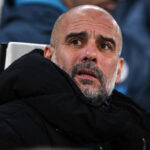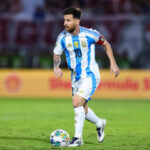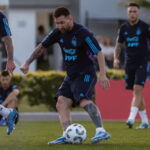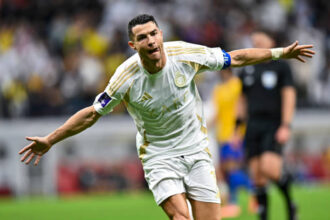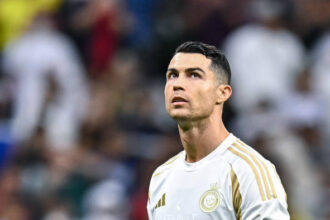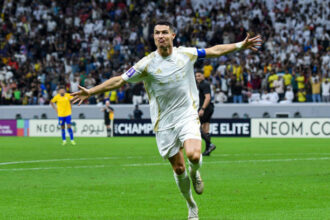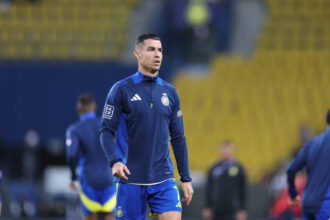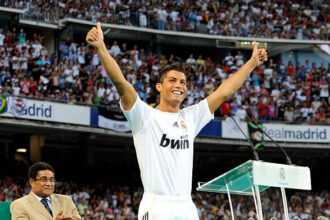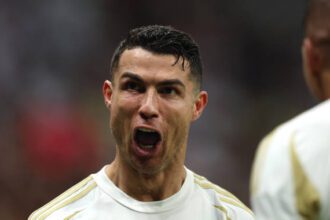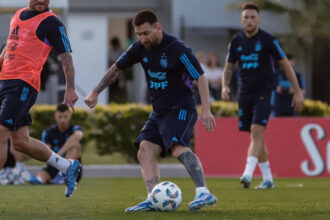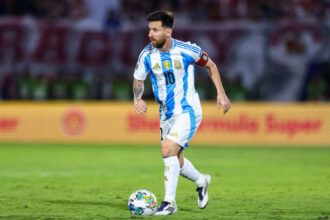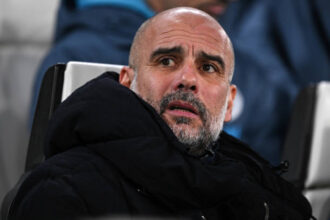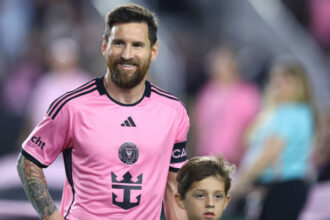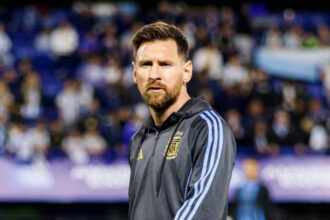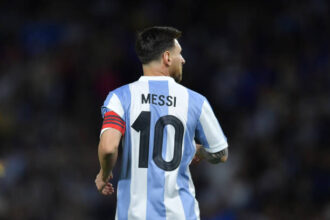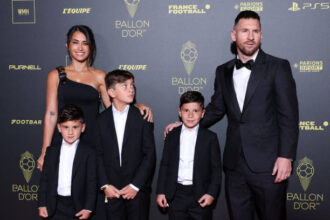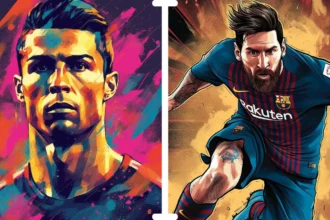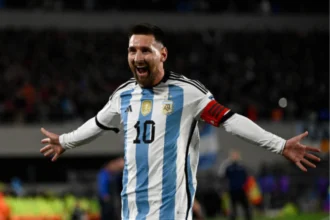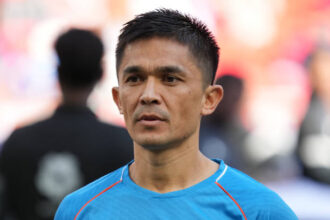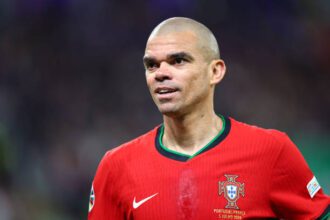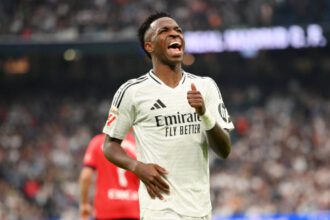Lionel Messi’s Journey from Rosario to Barcelona: A football fairy tale
Lionel Messi, the computer generates, is an echoing name in all corners of the world – the diffused distances and the different tongues mark no exception. They say he is, perhaps, one of the best footballers of all time. The name Messi has become bigger, maybe among the biggest, in the world of sports, in terms of football. From a small neighbourhood in the city of Rosario, Argentina, he became what today represents: the heart of FC Barcelona. Talent, determination, and resilience will show the path that’s fairytale in the world of sports.
Early Life in Rosario
Messi was born in Rosario, Santa Fe, Argentina on 24th June, 1987. George Massey was her father, a manufacturing factory worker, at the same time as Celia Cuccitini turned her mother, who laboured in a magnet factory. They brought up Messi in a humble home, where they were crazy about football. Any child introduced to a football would develop a love for the game even at an early age. He was also brought up with his two older brothers, Rodrigo and Matías, or their cousin, Maximiliano Biancucchi, with whom they often played street football together. It was during these childhood matches that Messi’s raw talent began to shine forth.
Four years old, he joined the first club he played for, Grandoli, which was just some tiny and very local team with his father coaching it. Short but hushed, right from the start, it became evident that he could put on a show with the ball and had a natural understanding of the game. By six, he was already playing with Newell’s Old Boys, which was a very important club in the city of Rosario. Messi dazzled spectators with his skill, scoring nearly 500 goals in six years and earning his team the nickname “The Machine of ’87” based on their year of birth.
However, all through his adolescence, he faced a few demanding situations. At the age of ten, Messi had passed through a few assessments that revealed he was laid low with a boom hormone deficiency. This disease would have hindered his bright future as a budding footballer. Treatment was very costly. Though his family would go out of their way to support him, their financial status could not carry the cost of the treatment. The only thing that did not suffer was the love Messi had for the game.
The Barcelona Connection
In 2000, a ratifying knock at the door of Messi’s life. Carles Rexach, sporting director of the FC Barcelona, had heard via a go-between about the young Argentine prodigy. He saw Messi play in test match in Barcelona and officially said he would give him a contract by writing it on a napkin, with the promise of the payment of the medical costs by the institute. At that age of 13, Messi and his family have undergone the emotional transference to Spain.
Home to Rosario, Messi made the most extensive trip possible to Barcelona. He was homesick and found difficulty adapting to a new culture and language, but his talent overpowered these weaknesses. He came to La Masia, the cathedral of youth football, and he approximately took it by storm, with coaches all gaping at his dribbling and vision, and how composed he always looked on the ball, describing him typically as the kid with a glued ball on his shoes.
Rise Through the Ranks
He proved so adept in the meteoric rise through Barcelona’s ranks as early as 2003: at age 16, he debuted for the first team in a friendly match against FC Porto. A year later, on 16 October 2004, Messi made his official debut for Barcelona in a La Liga match against Espanyol, thus becoming the third youngest player to debut for the club. His big break came on May 1, 2005, as he delivered his first senior goal against Albacete. Ronaldinho set him up, and Messi flicked the ball over the goalkeeper as though he had been doing so for a long time. It also became one of those special moments in football, synonymous with the passing of the torch between extraordinary talents of different generations.
As Messi matured, he became increasingly integral to the Barcelona squad. It was under coaches like Frank Rijkaard and Pep Guardiola that Messi really perfected the art of brilliant football and then transformed his skills into those of a great phenomenon. He, together with other brilliant players like Xavi Hernández, Andrés Iniesta, and Samuel Eto’o, took Barcelona to heights few could even imagine.
Follow us for latest updates
Article Continues below
Related Articles
The Era of Dominance
In factor of reality, the 2008-09 season marked the beginning of Messi’s golden age. Under Pep Guardiola, the FC Barcelona adopted a style of play called tiki-taka, characterized by way of quick passes and excessive-velocity ball pressures. Messi performed brilliantly in this style, playing as a “false nine” in the misused space-spectacles and commanded the play.
Historic treble, in that season Barcelona won treble: La Liga – Copa del Rey – UEFA Champions League; and Messi did score some wonderful important goals, including that memorable header in the Champions League final against Manchester United. He has been awarded the first one for individual brilliance by the Ballon d’Or in 2009-giving him many more to come in the days ahead.
Between 2009 and 2012, Messi reached heights that were extraordinary. Breaking several records, including one previously set by Gerd Müller for most goals scored in a year: 91 in 2012. His consistency, inventiveness, and ability to step up when the stakes are highest solidified his legacy as an all-time great in football.
Challenges and Triumphs
He was competing against one of the fiercest rivalries ever, as Real Madrid, organised by Cristiano Ronaldo, became Barcelona’s enemy and created history. More comparisons made it harder for him.
His story was, however, marred with anguish in international colours. While he took his country Argentina through to finals in 2014 World Cup, the 2015 Copa America and the 2016 Copa America Centenario, he always ended up being the finish line short of goal. Critics rattled Messi in his ability to lead and for supposedly being uncommitted to the national side, forcing him to retire for a brief spell from international duty in 2016. That never quenched that passion for Argentina, and Messi was back to target proving detractors wrong.
Legacy at Barcelona
He has given his loyalty and commitment to this club for extra than a long time. Barcelona has made him its all-time leading scorer, with 10 titles from La Liga, 7 from the Copa del Rey, and four from the UEFA Champions Leagues. He was the hallmark of everything remarkably magical, whether through solo goals, pinpoint assists or he dazzled everyone else with his dribbles.
On pitch as well carries the meek simplicity of life into the hearts and minds of all those from abroad or outside. Despite being so successful, he is behind the scenes and focuses on his family and philanthropy. He has led to numerous charitable causes through the Leo Messi Foundation, including health and education for less fortunate children.
Departure from Barcelona
In August 2021, the fairytale which was Messi and Barcelona came to an unexpected end. Due to economic issues and the inflexible income cap legal guidelines of La Liga, the club needed to allow move of its greatest player. The footballing international changed into bowled over with the aid of the declaration, with an emotional Messi bidding adieu to a club he referred to as home for 21 years.
He migrated subsequently to Paris Saint-Germain (PSG) where he continues to flaunt his unique play along with other stars like Neymar and Kylian Mbappé. Though leaving Barcelona brought an end to an era, that same exit was also a testament to the hardships faced in today’s football.
The Pinnacle of Glory
Messi was immortalized in records in December 2022 when he guided Argentina to victory within the FIFA World Cup in Qatar. The master himself at the age of 35, Messi performed wonderfully at some stage in the match, netting seven desires, of which have been scored in the very last towards France. It culminated in a dramatic penalty shootout victory that achieved his dream and his legacy as the “greatest of all time” owing also to his leadership strength, determination, and capable inspiration of his teammates.
For everyone, it was only magic when Messi stood with the World Cup trophy hung in the Argentina flag. Years of hard work, sacrifice, and perseverance found their place in that final act – a fairy-tale ending to a saga that started on the streets of Rosario.
Conclusion
Lionel Messi’s saga travels from Rosario to Barcelona, a shining example of talent giving birth to determination and a hundred-fold resilience. From overcoming a condition that rendered him medically unstable to the most popular face in world football today, the story of Messi inspires millions of people.
Not limited, however, by his breaking record; it is beyond his skill for gladdening the hearts of fans, uniting fellows through football, and serving as a guide to budding athletes. Lionel Messi isn’t just a soccer player; he’s a living legend whose fairytale continues to inspire generations to dream without fear and distract them from pursuing their passions at any cost.



